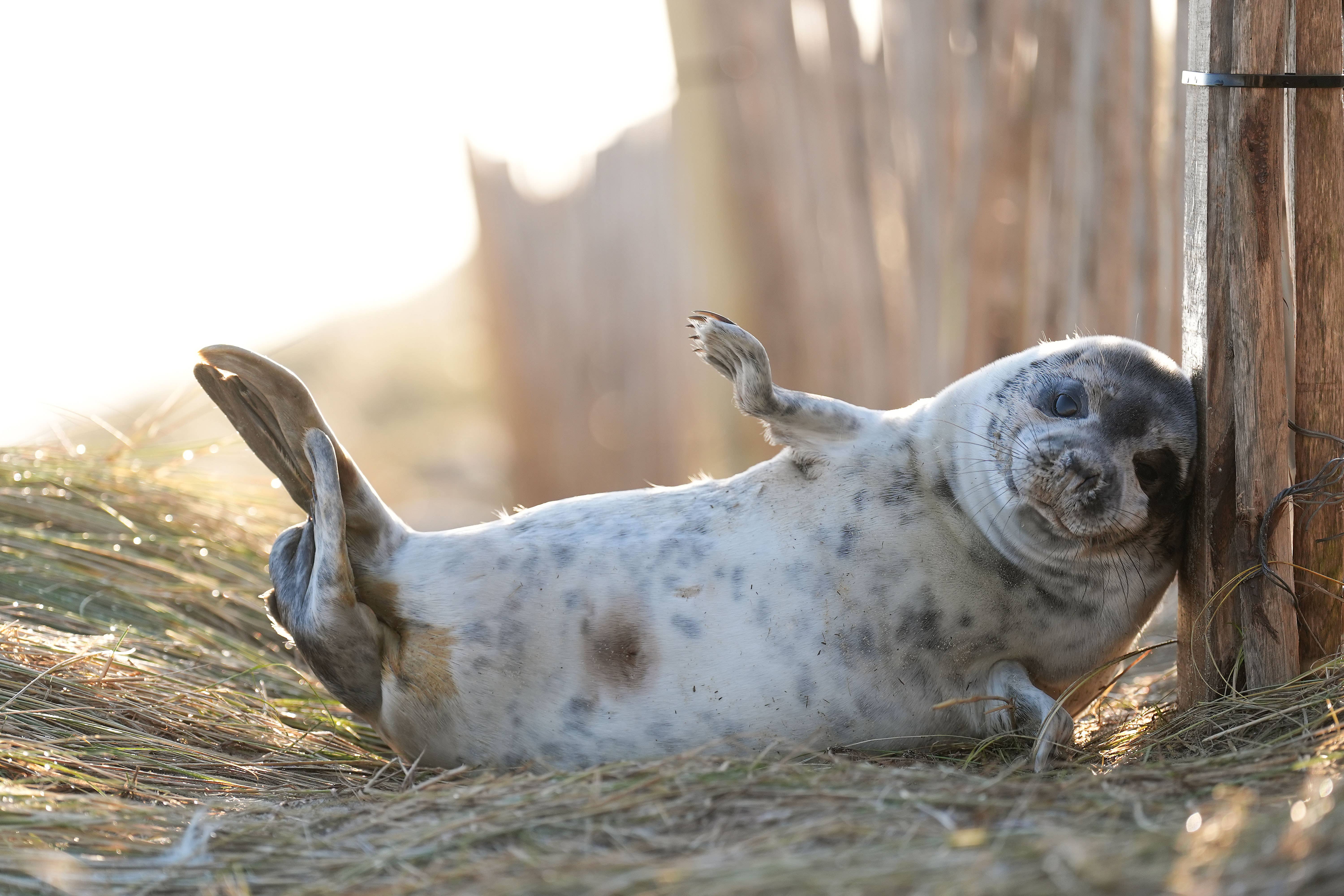Thousands of grey seal pups counted at coastal breeding ground
While numbers remain high, this year’s final count was 370 less than last year.

Your support helps us to tell the story
From reproductive rights to climate change to Big Tech, The Independent is on the ground when the story is developing. Whether it's investigating the financials of Elon Musk's pro-Trump PAC or producing our latest documentary, 'The A Word', which shines a light on the American women fighting for reproductive rights, we know how important it is to parse out the facts from the messaging.
At such a critical moment in US history, we need reporters on the ground. Your donation allows us to keep sending journalists to speak to both sides of the story.
The Independent is trusted by Americans across the entire political spectrum. And unlike many other quality news outlets, we choose not to lock Americans out of our reporting and analysis with paywalls. We believe quality journalism should be available to everyone, paid for by those who can afford it.
Your support makes all the difference.More than 3,200 grey seal pups were born along a section of the Norfolk coast this season – slightly fewer than last year and possibly due to them finding new breeding grounds elsewhere.
The Friends of Horsey Seals group, which monitors the colony along the five-mile stretch between Waxham and Winterton, counted 3,246 pups there this season.
While numbers remain high, this year’s final count was 370 less than last year.
Peter Ansell, chairman of Friends of Horsey Seals, said: “We don’t know where the seals go.
“My personal opinion is it gets so crowded down there for them when they’re giving birth, I think perhaps some of them now have found other places to go.
“For instance there’s a small colony started up at Orford Ness (on the Suffolk coast) which is not too far from us.
“It may be some of our lot decided to go down there.
“It could also be, purely theoretical this one, Scroby Sands (a sandbank more than a mile off the coast of Great Yarmouth).
“If Scroby Sands is above the water, they may be out there in perfect peace and quiet – ideal place for them.”
He said he did not think the reduction in the number of seal pups counted at Horsey was “anything significant”, adding: “I don’t place a lot of worry about the figures at the moment.”
Mr Ansell cautioned that while the volunteers do their best to do an accurate count, you “can’t always catch every one of them”.
The pupping season generally starts at the beginning of November and finishes by the end of January.
The majority of births happen from mid-November to mid-December, attracting thousands of visitors each winter as young seals are weaned before entering the sea.
In the 2022-23 season, 3,796 seal pups were counted along the coast at Horsey and this was almost double the 2019-20 season count of 2,069.
The National Trust said a colony was first observed at Orford Ness in 2021 following a reduction in visitor access because of the pandemic, and more than 130 seal pups were born there during the 2023-24 breeding season.
Visitors to Horsey are asked to keep their distance from seals for the wellbeing of the animals and for their own safety, and to keep dogs on a lead while the pups are ashore.
Mr Ansell said Friends of Horsey Seals are fundraising to repair the wooden steps to a viewing area at the top of the dunes.
For details, see friendsofhorseyseals.co.uk.